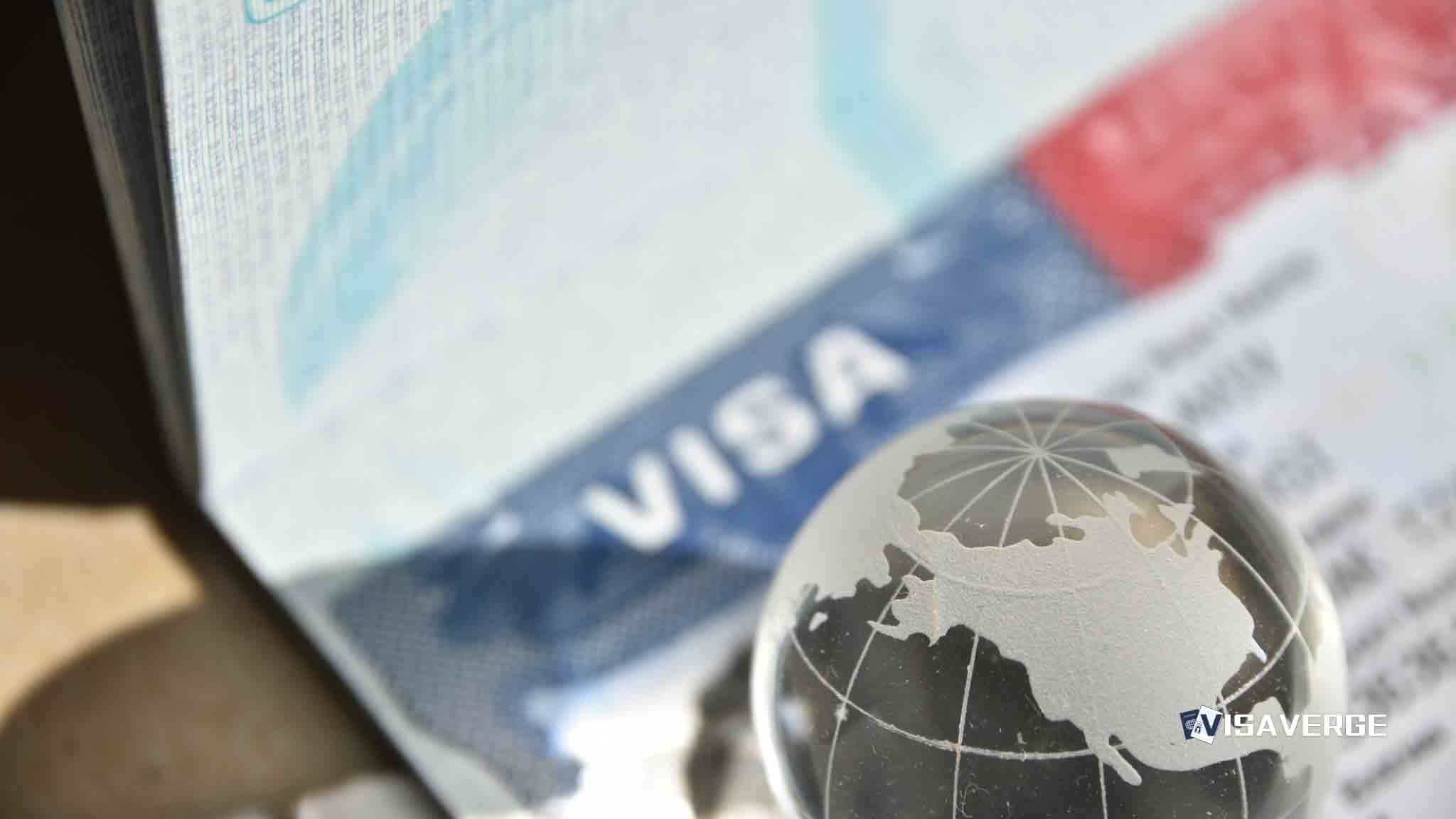Key Takeaways
• Kristi Noem calls ICEBlock app ‘obstruction of justice’ amid rising ICE attack claims on June 30, 2025.
• ICEBlock app anonymously alerts communities about ICE, with over 20,000 users since Trump’s renewed raids.
• DHS considers prosecuting app developer Joshua Aaron, no formal charges filed as of July 1, 2025.
Kristi Noem Calls ICEBlock App ‘Obstruction of Justice’ Amid Rising Tensions Over Immigration Enforcement
On June 30, 2025, Kristi Noem, Secretary of Homeland Security, took to X (formerly Twitter) to accuse the developer of the ICEBlock app of “obstruction of justice.” Her statement came after a CNN segment highlighted the app’s growing popularity and its role in alerting communities to Immigration and Customs Enforcement (ICE) activity. Noem’s comments have sparked a heated national debate about the line between community defense and interference with federal law enforcement, raising questions about free speech, technology, and the future of immigration enforcement in the United States 🇺🇸.

What Happened?
Kristi Noem’s public response followed a surge in ICEBlock app downloads, which now boasts over 20,000 users. The app, created by tech developer Joshua Aaron, allows people to anonymously report and broadcast suspected ICE sightings in real time. Noem warned that the app “puts a target on [ICE agents’] backs,” referencing a claimed 500% increase in assaults against ICE officers. She stated, “If you obstruct or assault our law enforcement, we will hunt you down and you will be prosecuted to the fullest extent of the law.”
Noem’s remarks signal a possible legal crackdown on both the app’s developer and its users, with the Department of Homeland Security (DHS) considering prosecution under obstruction of justice laws. However, as of July 1, 2025, no formal charges have been filed.
How Does the ICEBlock App Work?
The ICEBlock app is designed to help immigrant communities avoid surprise ICE enforcement actions. Here’s how it operates:
- A user sees suspected ICE activity—for example, agents arriving in a neighborhood.
- The user submits an anonymous report through the app.
- The app broadcasts an alert to other users in the area, warning them about the possible ICE presence.
- No personal data is collected—the developer claims the app does not store device IDs, IP addresses, or any identifying information.
Joshua Aaron, the app’s creator, says ICEBlock is a tool for community defense. He insists it is 100% anonymous and free, and that it was built in response to President Trump’s renewed ICE raids across the country. Aaron has compared the current climate to “history repeating itself,” pointing to past examples of government overreach.
Federal Response and Policy Implications
Kristi Noem’s hardline stance is clear: she sees the ICEBlock app as a direct threat to law enforcement. During a White House press briefing on June 30, 2025, Press Secretary Karoline Leavitt criticized CNN for “promoting” the app, calling it “unacceptable” given the reported rise in attacks on federal officers. Noem has not provided detailed statistics to back up her claim of a 500% increase in assaults, but her message is unmistakable—anyone who obstructs or assaults ICE agents will face prosecution.
The Department of Homeland Security has not yet announced specific legal action against the app or its developer, but Noem’s statements suggest that DHS is actively considering prosecution under obstruction of justice statutes. This could have serious consequences for both the app’s creator and its users.
What Is ‘Obstruction of Justice’?
Obstruction of justice is a legal term that means interfering with the work of law enforcement or the courts. In this context, Kristi Noem argues that using or promoting the ICEBlock app could be seen as interfering with ICE operations, especially if it helps people avoid arrest or disrupts enforcement actions.
Legal experts are divided on whether the app’s activities meet the definition of obstruction of justice. Some say that simply sharing information about law enforcement activity that is visible to the public is protected by the First Amendment, which guarantees free speech. Others argue that if the app is used with the intent to help people evade law enforcement, it could cross the line into criminal behavior.
Stakeholders and Their Positions
The ICEBlock controversy has drawn strong reactions from a range of stakeholders:
- Kristi Noem (DHS Secretary): Calls the app “obstruction of justice” and threatens prosecution for anyone who obstructs or assaults ICE agents.
- Joshua Aaron (ICEBlock Developer): Defends the app as a tool for community defense, insists it collects no personal data, and compares current ICE raids to historical government abuses.
- White House (Press Secretary Karoline Leavitt): Criticizes media outlets for promoting the app, linking it to increased danger for law enforcement.
- Congressional Democrats: Accuse Noem of breaking federal law by blocking congressional oversight of ICE facilities, escalating tensions between DHS and lawmakers.
- Acting ICE Director Todd Lyons: States that ICE focuses on serious criminals, denies that agents make warrantless arrests, and promises continued enforcement.
Background: ICEBlock’s Role in the Immigration Debate
The ICEBlock app was developed in direct response to President Trump’s renewed ICE raids. Its main goal is to give immigrant communities a real-time warning system, so people can avoid encounters with ICE. The app’s promise of complete anonymity is meant to protect users from government tracking or retaliation.
Noem’s criticism of the app fits into a larger pattern of tension between federal immigration authorities and local governments, especially in sanctuary cities like Los Angeles. Sanctuary cities are places where local officials limit cooperation with federal immigration enforcement. Noem has accused these officials of making ICE operations more dangerous and has suggested sending additional federal troops to support enforcement.
In June 2025, House Democrats accused Noem of violating federal law by blocking congressional oversight of ICE facilities. This dispute has further strained relations between DHS and lawmakers, with both sides accusing each other of putting lives at risk.
Practical Implications for Immigrants, Law Enforcement, and Developers
The ICEBlock app has real-world effects for several groups:
- Immigrants and Advocates: The app offers a way to avoid ICE encounters and possible detention or deportation. Its anonymous design aims to protect users from being identified by the government.
- ICE Agents: DHS and ICE leaders argue that the app endangers officers by making their locations public, which could lead to more assaults or interference with operations.
- App Developers: Kristi Noem’s statements suggest that developers and possibly users could face legal action if the government decides to pursue obstruction of justice charges.
How Legal Experts See the Issue
Legal opinions on the ICEBlock app are mixed. Some experts believe that sharing information about law enforcement activity that anyone can see is protected speech. They argue that the First Amendment covers this kind of reporting, especially since the app does not encourage violence or illegal activity.
Others point out that if the app is used specifically to help people avoid arrest or disrupt ICE operations, it could be seen as obstruction of justice. The key question is whether the app’s main purpose is to inform the public or to interfere with law enforcement.
Civil liberties organizations are likely to challenge any prosecution on free speech grounds. They may argue that punishing people for sharing information about government activity sets a dangerous precedent.
Congressional Oversight and Political Tensions
The ICEBlock controversy comes at a time of heightened political tension over immigration enforcement. In June 2025, House Democrats accused Kristi Noem of breaking federal law by blocking oversight of ICE facilities. They argue that transparency is needed to protect the rights of immigrants and ensure humane treatment in detention centers.
Noem, on the other hand, has criticized local officials in sanctuary cities for making ICE operations more difficult. She has promised to continue enforcement actions despite local resistance and has suggested that more federal troops could be sent to support ICE agents.
These disputes reflect a broader national debate over the role of federal and local governments in immigration enforcement, the rights of immigrants, and the limits of technology in activism.
Potential Legal and Policy Outcomes
As of July 1, 2025, no formal charges have been filed against Joshua Aaron or ICEBlock users. However, Kristi Noem’s statements indicate that DHS is considering aggressive legal action. If the government decides to prosecute, the case could become a major legal battle over the limits of free speech, the use of technology in activism, and the power of federal law enforcement.
Possible outcomes include:
- Criminal Charges: If DHS pursues obstruction of justice charges, developers and users could face prosecution. The outcome would likely depend on whether courts see the app as protected speech or as illegal interference.
- Civil Liberties Lawsuits: Civil liberties groups could file lawsuits to defend the app and its users, arguing that prosecution would violate the First Amendment.
- Policy Changes: DHS may issue new rules or guidance about technology that tracks or interferes with law enforcement operations. This could affect not only ICEBlock but also other apps and tools used by activists.
What Should Immigrants, Advocates, and Developers Do Now?
Given the uncertainty, people who use or develop apps like ICEBlock should:
- Stay Informed: Follow updates from DHS, ICE, and trusted news sources about possible legal action or policy changes.
- Know Your Rights: Understand the basics of free speech and privacy laws. Civil liberties organizations often provide resources and legal support.
- Be Cautious: While the app promises anonymity, users should be aware of the risks if the government pursues legal action.
- Seek Legal Advice: Developers and users facing possible prosecution should consult with qualified immigration or criminal defense attorneys.
For official information about immigration enforcement and your rights, visit the Department of Homeland Security’s website.
Looking Ahead: What’s Next for ICEBlock and Immigration Enforcement?
The ICEBlock controversy is likely to continue fueling debate over immigration policy, technology, and civil liberties in the United States 🇺🇸. Kristi Noem’s strong response shows that the federal government is willing to take tough action against what it sees as interference with law enforcement. At the same time, activists and civil liberties groups are preparing to defend the right to share information and protect vulnerable communities.
Key issues to watch in the coming months include:
- Legal Showdown: If DHS files charges, the case could set important precedents for free speech, technology, and the limits of government power.
- Political Polarization: The debate over ICEBlock is deepening divisions between supporters of strict immigration enforcement and those who advocate for immigrant rights and community defense.
- Policy Shifts: DHS may introduce new rules or seek legislation to limit the use of technology that tracks or warns about law enforcement activity.
As reported by VisaVerge.com, the ICEBlock case highlights the growing role of technology in immigration activism and the challenges it poses for law enforcement and policymakers. The outcome will have lasting effects on how communities, developers, and the government interact in the digital age.
Conclusion: Practical Takeaways for Readers
- If you are an immigrant or advocate: Stay alert to changes in enforcement practices and know your rights. Use caution with apps like ICEBlock, and seek legal advice if you are concerned about possible prosecution.
- If you are a developer: Be aware of the legal risks involved in creating tools that could be seen as interfering with law enforcement. Consult with legal experts before launching or updating such apps.
- If you are a policymaker or law enforcement official: Consider the balance between public safety, civil liberties, and the need for transparency in enforcement actions.
The ICEBlock controversy is a clear example of how technology, law, and politics are shaping the future of immigration enforcement in the United States 🇺🇸. As the debate continues, all sides will need to weigh the risks, rights, and responsibilities involved.
For more information about immigration enforcement and your rights, visit the Department of Homeland Security’s official website.
References:
– Department of Homeland Security
– ICE (Immigration and Customs Enforcement)
– VisaVerge.com analysis
This article provides general information and should not be taken as legal advice. For specific guidance, consult a qualified attorney or official government resources.
Learn Today
Obstruction of Justice → Interfering with law enforcement or court activities, potentially a criminal offense under federal law.
ICE (Immigration and Customs Enforcement) → Federal agency responsible for enforcing immigration laws and investigating illegal immigration.
First Amendment → Part of the US Constitution protecting freedoms of speech, press, and assembly from government restriction.
Sanctuary Cities → Local jurisdictions limiting cooperation with federal immigration enforcement to protect undocumented immigrants.
Anonymous Reporting → Submitting information without revealing personal identity, used to protect reporters from retaliation.
This Article in a Nutshell
Kristi Noem accuses ICEBlock app of obstructing justice after its rise alerted immigrant communities of ICE raids anonymously. DHS may prosecute, raising free speech and legal debates. The app’s future looms amid political tension over immigration enforcement and technology’s role in community activism.
— By VisaVerge.com







